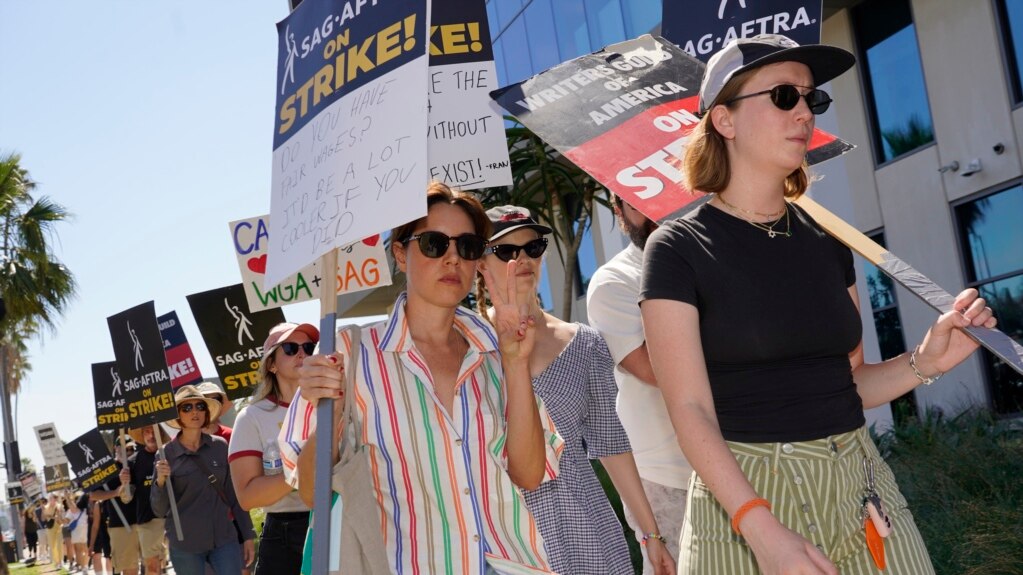A combined strike by Hollywood actors and screenwriters is entering its second week with no sign of an end to the labor action.
For a week, actors including Tina Fey, Kevin Bacon, Kyra Sedgwick, Rosario Dawson, David Duchovny and other stars have joined working class performers and writers on picket lines. They are protesting outside studios and corporate offices of streaming companies Amazon, MAX and Netflix.
The famous actors' appearance on picket lines has provided additional star power and voices on issues central to both groups — better pay and protection from the use of artificial intelligence. About 65,000 actors — the large majority of whom do not make enough from acting to qualify for health care benefits through their union — along with 11,500 screenwriters, are on strike.
While many of the picket lines are in Los Angeles and New York, film and television production happens throughout the country. Boston, Massachusetts, Philadelphia, Pennsylvania and Chicago, Illinois were among the major cities with strike events Tuesday and Wednesday. Later Friday, actors in Britain’s capital, London, held an event in solidarity with the American workers.
The Alliance of Motion Picture and Television Producers represents the studios and streaming companies. The group has said it offered both writers and actors substantial pay increases and have tried to meet other demands.
Many on the picket lines have seized upon comments by their corporate bosses like Disney CEO Bob Iger, who last week called the workers’ demands “not realistic.”
During an earnings event Wednesday, Netflix co-leader Ted Sarandos said he grew up in a union household and knows how difficult strikes are for workers.
“We're super committed to getting to an agreement as soon as possible. One that's equitable and one that enables the unions, the industry and everybody in it to move forward into the future,” he said.
Actor-writer Seth Green said streaming, which became a main media supplier during the pandemic, has hurt the livelihoods of those striking.
“It all got broken. I mean, it sounds silly to say, but it’s really as simple as that," Green said, speaking outside Paramount Studios in Hollywood Thursday. Traditional entertainment contracts used to pay actors and writers throughout the long lifespan of successful shows and movies. But no longer, he said.
“If the company that owned the thing made a billion dollars, you’d get like a little bit of money from that."
"All of that," Green said, "is gone.”
I’m Dominic Varela.

